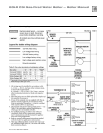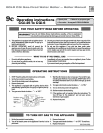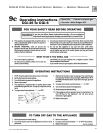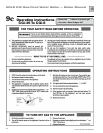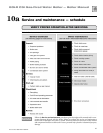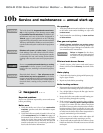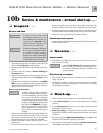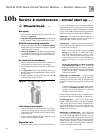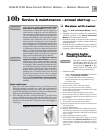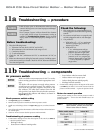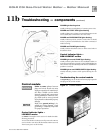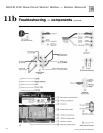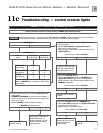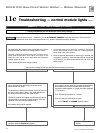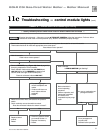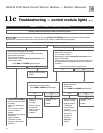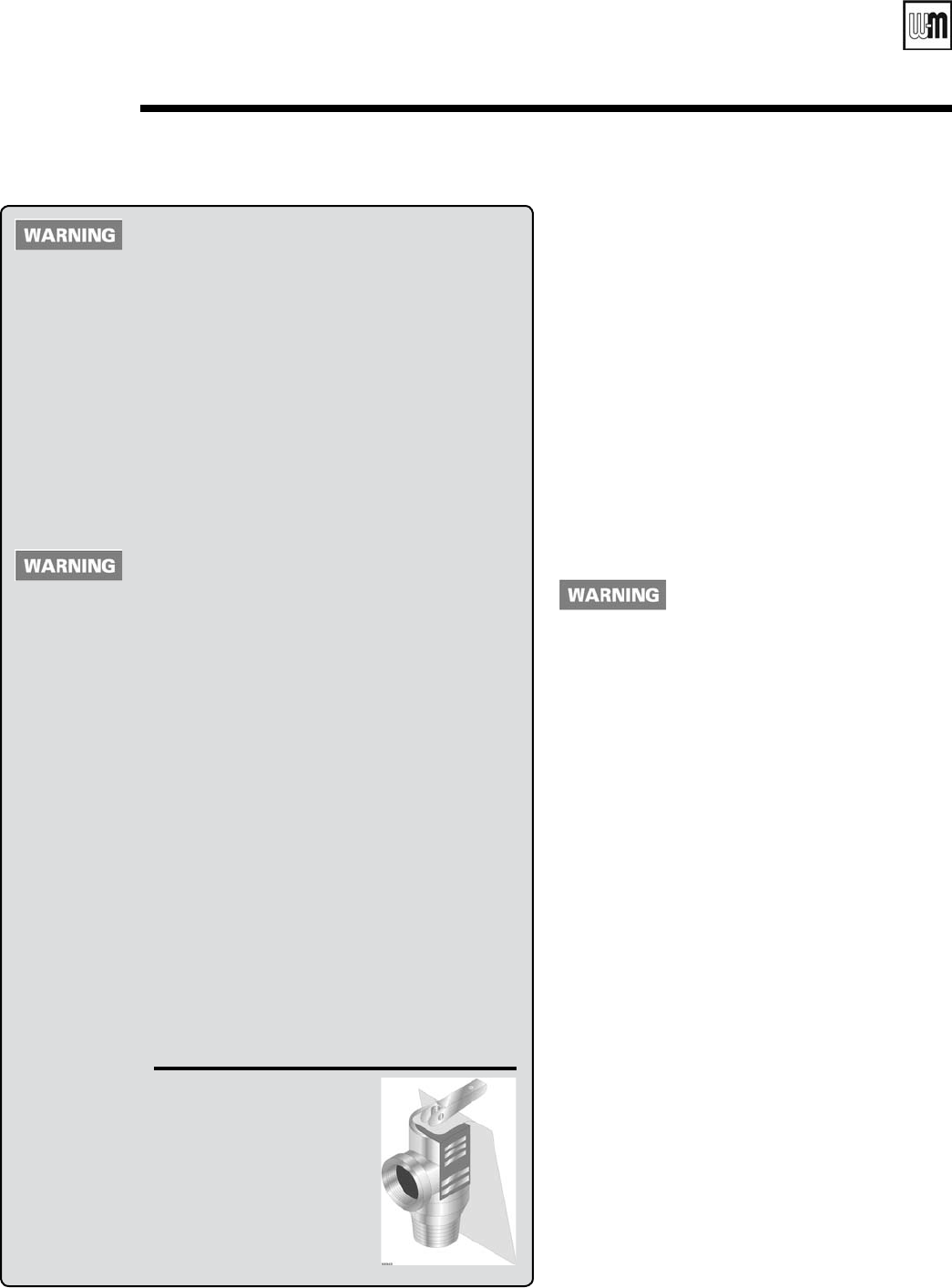
Part Number 550-110-710/0107
47
GOLD CGi Gas-Fired Water Boiler — Boiler Manual
❏ Review with owner
1. Review the User’s Information Manual with the
owner.
2. Emphasize the need to perform the maintenance
schedule specified in the
User’s Information
Manual (and in this manual as well).
3. Remind the owner of the need to call in a licensed
contractor should the boiler or system exhibit any
unusual behavior.
4. Remind the owner to follow the proper shutdown
procedure and to schedule an annual start-up at the
beginning of the next heating season.
❏ Cleaning boiler
heating surfaces
The boiler contains ceramic fiber
and fiberglass materials. Use care
when handling these materials per
instructions on page 68 of this
manual. Failure to comply could
result in severe personal injury.
1. Shut down boiler:
• Follow “To Turn Off Gas to Appliance” instructions
on boiler and
Operating instructions.
• Do not drain boiler unless it will be exposed to
freezing temperatures. If using antifreeze in sys
-
tem, do not drain.
2. Follow shutdown procedure.
3. Remove venting system connection to boiler.
4. Remove top jacket panel. Turn back insulation.
5. Remove collector box/transition assembly. Clean sealant
from assembly and sections.
6. Remove radiation plates hanging between sections.
7. Remove burners from base. Brush and vacuum burners
to remove all dust and lint. Verify that all burner ports are
free of debris.
8. Place newspapers in base of boiler to collect soot.
9. Clean between sections with wire flue brush.
10. Remove newspaper and soot. Vacuum or brush base and
surrounding area.
11. Reinstall radiation plates.
12. Replace collector box/transition assembly. Seal with seal
-
ant. Obtain gas-tight seal to prevent flue gas spillage and
carbon monoxide emissions, resulting in severe personal
injury or death.
13. Replace insulation and jacket top panel.
14. Start up boiler following
Section 7, pages 32-35 of this
manual and the boiler
Operating instructions. Excessive
sooting indicates improper gas combustion. If found
check for proper combustion and make any necessary
adjustments.
Safety relief valves should be reinspected AT LEAST
ONCE EVERY THREE YEARS, by a licensed plumb-
ing contractor or authorized inspection agency, to
ensure that the product has not been affected by
corrosive water conditions and to ensure that the
valve and discharge line have not been altered or
tampered with illegally. Certain naturally occurring
conditions may corrode the valve or its compo-
nents over time, rendering the valve inoperative.
Such conditions are not detectable unless the valve
and its components are physically removed and
inspected. This inspection must only be conducted
by a plumbing contractor or authorized inspection
agency — not by the owner. Failure to reinspect the
boiler relief valve as directed could result in unsafe
pressure buildup, which can result in severe personal
injury, death or substantial property damage.
Following installation, the valve lever must be
operated AT LEAST ONCE A YEAR to ensure that
waterways are clear. Certain naturally occurring
mineral deposits may adhere to the valve, rendering
it inoperative. When manually operating the lever,
water will discharge and precautions must be taken
to avoid contact with hot water and to avoid water
damage. Before operating lever, check to see that a
discharge line is connected to this valve directing
the flow of hot water from the valve to a proper
place of disposal otherwise severe personal injury
may result. If no water flows, valve is inoperative.
Shut down boiler until a new relief valve has been
installed.
Boiler relief valve
1. Inspect the relief valve and lift the lever to verify flow as in the
following warnings, excerpted from a relief valve manufacturer’s
warning label. Before operating any relief valve, ensure that it is
piped with its discharge in a safe area to avoid severe scald potential.
Read manual Section 4 before proceeding further.
2. After following the above warning directions, if the relief valve
weeps or will not seat properly, replace the relief valve. Ensure that
the reason for relief valve weeping is the valve and not over-pres-
surization of the system due to expansion tank waterlogging or
undersizing.
Figure 35 Relief valve, typical
10b Service & maintenance – annual start-up (cont.)



